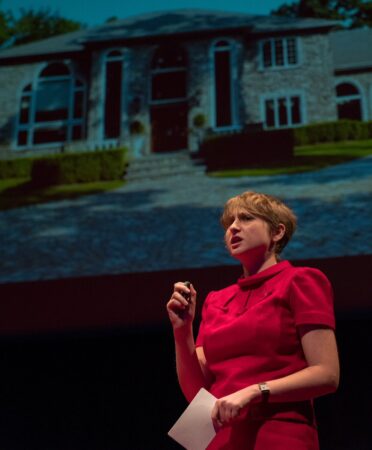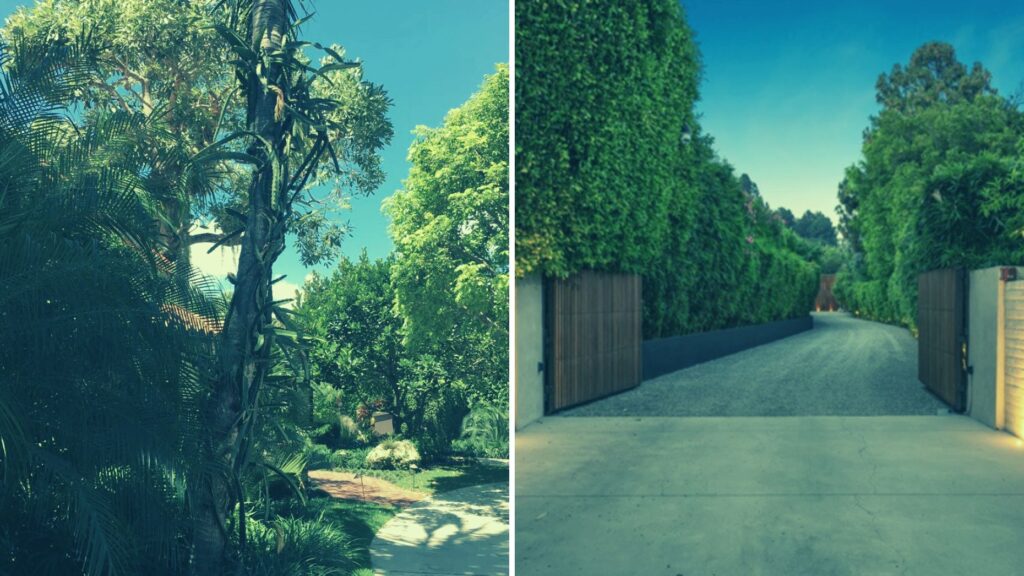In a shifting real estate market, the guidance and expertise that Inman imparts are never more valuable. Whether at our events, or with our daily news coverage and how-to journalism, we’re here to help you build your business, adopt the right tools — and make money. Join us in person in Las Vegas at Connect, and utilize your Select subscription for all the information you need to make the right decisions. When the waters get choppy, trust Inman to help you navigate.
Like countless Americans, Jessica Cassan developed a habit a few years ago of browsing Zillow listings for entertainment, a popular practice known, at least to some, as “Zillowing.”
Cassan said she started out scrolling through photos of houses that were far outside her price range. But as the housing market morphed and prices for regular houses grew at an astronomical rate, she started to grow more interested in what few remaining cheap houses were available, especially in her area of Spokane, Washington, she said.
It was from this interest that her TikTok page The Affordable House Chick was born. Soon after she started posting cheap houses around Spokane, commenters implored her to look in other markets.
“People started seeing my videos in my area and said, ‘Oh I’d love to see this in Phoenix, Arizona, or in Colorado,’” she said.
Many of the people who comprise her 23,000 TikTok followers are searching for a home, Cassan said.
“I’ve noticed on a lot of my videos, especially in areas that people don’t know about, people will look at it and say, ‘Oh my god, I need this house right now,’’’ she said. “People are contacting the listing agents on the houses, it definitely gets them more exposure.”
@theaffordablehousechick Grand Forks, ND! ?Where to next?! #greenscreen #northdakota #grandforks #mostaffordablehouses #theaffordablehousechick #realestate #zillowfinds #zillowlisting #momsoftiktok #zillowgonewild #housingmarket #zillowtastrophe #housingcrisis #homereview #zillow #fyp #foryoupage #housesoftiktok
♬ Love You So – The King Khan & BBQ Show
Jessica Casan | Credit: Jessica Casan
Cassan, who works in the healthcare industry and has no formal experience in real estate, finds the cheapest listings in any given area through extensive filtering on Zillow. She has also featured houses being sold by her followers, a service some real estate pages charge for, but which Cassan offers for free since her page is still growing.
Though her following is small compared to other real estate content creators, Cassan has still managed to tap into TikTok’s creator fund — the app’s monetization feature that pays creators using a formula, taking engagement and views into account — when her videos have gone viral.
As with most creators, the payouts from the creator fund have been small, but it has placed Cassan within the burgeoning cottage industry of independent real estate content creators, who are making money by curating and commenting on real estate listings for an online audience eager to peek inside someone’s home.
Whether it’s been intentional or not, the creators have found themselves having a tangible effect on the real estate market when their posts go viral, with the boosted profile often helping to attract more offers on houses.
Fulfilling a niche and seeking monetization
One of the earliest creators to build a sizable following curating real estate listings is Kate Wagner, the Chicago-based architecture critic who runs the blog McMansion Hell, featuring detailed takedowns of some of suburban America’s gaudiest mass-produced mansions.
The blogger famously received a letter from Zillow in 2017, accusing her of violating copyright law, but did not pursue litigation after Wagner acquired counsel.
Wagner has managed the blog since 2016, and offers bonus content on the membership platform Patreon, which requires users to pay a monthly subscription fee of at least $1. This fee provides access to the blog’s discord server and live streams.

Kate Wagner | Credit: Kate Wagner
In addition to tens of thousands of followers on Twitter, Wagner has attracted more than 2,000 Patreon subscribers, many of whom have read the blog since its inception.
Through the funds brought in by Patreon subscriptions, the blog provides enough for her to live comfortably, bringing in a salary roughly equivalent to that of a public school teacher, which she supplements with additional freelance writing work, she said.
Wagner told Inman she has attributed the blog’s popularity to a combination of nosiness and the widening wealth gap.
“There’s just generally a nosiness about other people’s houses,” she said. “People love looking inside of houses.”
Wagner is one of the few creators working with real estate content, who has managed to build a base of subscribers willing to pay for her content. Newer creators, many of whom popped up during the pandemic, have looked to other sources of revenue, which has proved inconsistent but not out of reach for most.

Samir Mezrahi | Credit: Linkedin
Zillow Gone Wild — one of the largest real estate curators with a platform of nearly 2 million across Instagram, Twitter and Facebook — has managed to sell sponsored posts to companies including Bud Light and the film franchise Paranormal Activity.
But even with a huge platform, consistent revenue has been hard to come by, according to Samir Mezrahi, who runs the page and also reviews celebrity homes on his personal TikTok.
“I haven’t totally figured out the full way to monetize it,” Mezrahi said in an interview.

Jessica More | Credit: Jessica More
Jessica More, a TikTok creator who has earned a following of over half-a-million roasting wacky listings on her account Zillowtastrophes, has managed to tap into the creator fund a few times when her videos have gone viral, but similar to Cassan’s experience she said the payouts are typically small and inconsistent, even with a platform of nearly half-a-million followers.
“TikTok doesn’t pay you a ton unless you get viral videos, nobody can support themselves on it really,” said More, who lives in Philadelphia and works in public relations. “Even at half a million followers, some days with just regular content I’ll get like five dollars, ten dollars. But then those videos where you get a million plus views, those are days when you’ll get 50 to 100 dollars, and when you string those together it’s definitely valuable.”
@zillowtastrophes Go home house, you’re drvnk ??? #tampa #realestate #zillowtastrophe
♬ Monsters, Inc – Gustav Lundgren & Unit
A viral bump for listings
Advertising is a far better method of monetization, said More, who has managed to sell ads to horror film franchises as well. And while some real estate agents purchase ads with content creators, because of the nature of her page — finding the “outright disasters” advertised on Zillow — More said she feels its unlikely anyone will seek her out to help sell a home.
“If I wanted to do this full time I would start an account that also showed many more hidden gems,” she said. “That would be the better way for me to monetize, to have people share things that people want to see.”
That’s not to say her work hasn’t had that effect anyway, though. More says she has been contacted by homeowners and sellers who both thank her for featuring their homes or ask them to remove the post.
She said she knows of examples when the publicity boost has aided in the sale of a property, such as a house in Fort Worth, Texas, with an in-ground pool conspicuously blocking the driveway that received multiple offers above asking after More made a video featuring the improbably placed pool and her video was picked up by the Fort Worth Star-Telegram.
@zillowtastrophes Goodbye garage, hello ✨cabana✨ #texas #realestate #zillowtastrophe
♬ Sneaky Snitch – Kevin MacLeod
“Even the ones that might not come off looking favorable have benefited from the exposure,” More said.
More added that she has removed posts when asked to by people connected to the homes featured, and that it’s not her intention to be mean spirited when pointing out a house’s unusual features.
“I always tell my followers — I want you to find something you love on my page. Beauty is in the eye of the beholder and there’s usually something redeeming, unique, or cool about every house I share,” she said.
Mezrahi says he also knows of transactions that would have been a difficult sell that have benefitted from being featured on Zillow Gone Wild, such as the $800,000 home in Fairfax, Virginia he featured that required a sight-unseen purchase, because it came with a squatter living in the basement. Despite that, it sold for above asking after his post went viral.
“I think going viral can definitely help these listings,” Mezrahi said.
Zillow, for its part, seems to take no issue with its brand name being used in the names of some of the enormously popular pages.
“While Zillow is not involved in these particular accounts, we understand why they’ve become so popular,” a company spokesperson said in a statement. “At a time when a lot of us are rethinking where and how we want to live, these social media accounts have captured our imagination and redefined what a home can be.
“A record 200M+ unique users turn to Zillow every month to dream and imagine the possibilities a move can bring, and the homes showcased on these accounts highlight the best part of homeownership — the ability to personalize your space to suit your taste and personality.”
And while monetization has been slow to come by, creators say they plan to keep making content for the love of it.
“I’m really just personally into real estate,” said Mezrahi, who does social media for Buzzfeed as his day job. “It’s been a lot of fun to be a part of, to be someone who people are thinking about for homes.”
Email Ben Verde



 Are You Interested in West Eleventh Residences Miami?
Are You Interested in West Eleventh Residences Miami? Are You Interested in ONE Park Tower by Turnberry?
Are You Interested in ONE Park Tower by Turnberry? Are You Interested in Diesel Wynwood Condominium?
Are You Interested in Diesel Wynwood Condominium? Are You Interested in Five Park Miami Beach?
Are You Interested in Five Park Miami Beach? Are You Interested in Cipriani Residences Miami?
Are You Interested in Cipriani Residences Miami? Are You Interested in Bentley Residences Miami?
Are You Interested in Bentley Residences Miami? Are You Interested in Baccarat Residences Brickell?
Are You Interested in Baccarat Residences Brickell? Are You Interested in Aria Reserve Miami?
Are You Interested in Aria Reserve Miami? Are You Interested in 888 Brickell Dolce & Gabbana | Miami?
Are You Interested in 888 Brickell Dolce & Gabbana | Miami? Are You Interested in 600 Miami WorldCenter?
Are You Interested in 600 Miami WorldCenter? Are You Interested in HUB MIAMI RESIDENCES?
Are You Interested in HUB MIAMI RESIDENCES? Are You Interested in WALDORF ASTORIA RESIDENCES?
Are You Interested in WALDORF ASTORIA RESIDENCES?